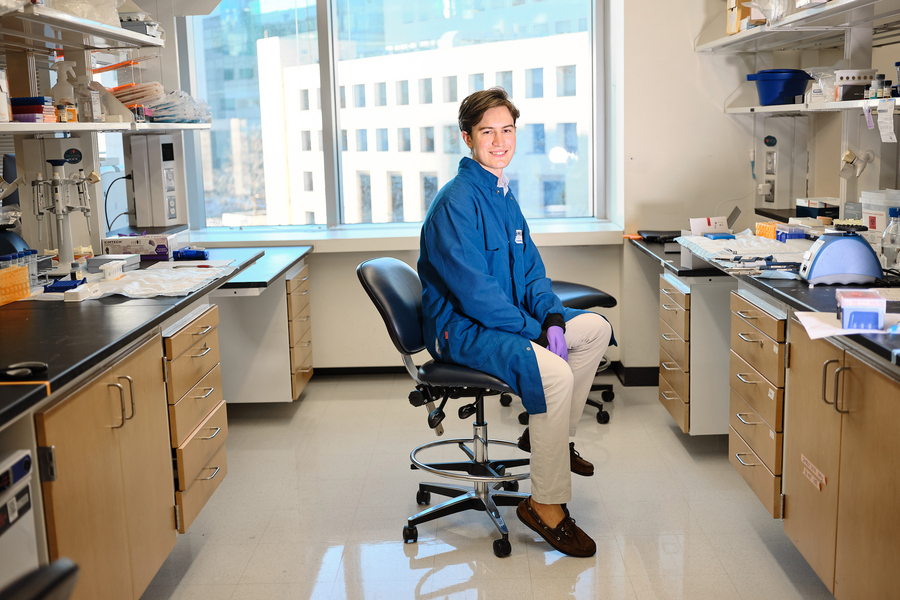Social Impact Intern, Julian Zulueta, featured in MIT News!
Julian Zulueta (’23) was a social impact intern during the summer of 2020. Read more about Julian’s reflections on their CDC Foundation internship experience, here! Julian discussed their PKG experience further, here.

Photo: Philip Keith
Seeking an opportunity to do something impactful in the early stages of the Covid-19 pandemic, Julian Zulueta applied for an internship with the U.S. Centers for Disease Control, through MIT’s PKG Public Service Center. During the summer of 2020, he analyzed requisition data to better understand how different regions across the United States were affected by Covid-19, and what resources would be most effective on the ground.
“We would talk with hospitals and see what they were going through on the ground level,” says Zulueta, an MIT senior majoring in bioengineering. “What were their cities looking like? How were health care workers responding? And how could we deploy epidemiologists or contact tracers to those different regions?”
The experience gave him a multifaceted perspective on public health and sparked a passion for public service leadership. While he hopes to attend medical school and contribute to immunology and cancer research as a physician-scientist, Zulueta is also committed to advancing the human side of medicine.
“In public health, a lot of times we think about it from a scientific standpoint, like medicine or biology,” he says. “But we also need to consider the social aspects.”
A holistic view
As an undergraduate researcher, Zulueta has focused on immunoengineering, specifically how the immune system reacts to cancer. He has worked in a number of labs through the Undergraduate Research Opportunities Program (UROP) to get hands-on experience in both wet lab and computational techniques, with the goal of developing more predictive and preventative ways to combat cancer.
Coming into MIT, Zulueta already had an interest in biology from classes he took in high school. Witnessing his grandmother’s melanoma diagnosis and treatment also spurred him to think not only about the technical aspects of cancer research, but the social impact as well.
When he was younger, Zulueta spent a lot of time with his grandmother, whether fishing together in the Florida Keys or chatting while she cooked croquetas and other favorite dishes. From this time together, and as he took her to doctor’s appointments throughout her recovery, Zulueta witnessed the deep impact that cancer has on individual lives.
That view of cancer research, and of health care more broadly, is best encapsulated by Zulueta’s favorite class at MIT, 7.45 (The Hallmarks of Cancer), which frames discussions around cancer in terms of people.
“We were given case studies, a problem of a patient with cancer, and had to think about how we would treat them,” says Zulueta. “How do we think about their overall health, not just in treating the cancer, but also improving quality of life.”
Following his internship with the CDC, Zulueta joined the MIT Undergraduate Association’s community service committee and has worked to inspire his peers to pursue service both during and after their time at MIT.
As president of the Bioengineering Undergraduate Board, he helps organize alumni talks, career fairs, and social events, and advocates for changes with the curriculum. One focal point has been increasing the flexibility of electives. For example, Zulueta has taken a number of computer science classes that have proved invaluable in his work, and he wants to ensure future students can easily access the same opportunities.
Read the full article on MIT News
Tags: Health, Health & Medicine, PKG Alumni, Social Impact Internship Summer 2020, Social Impact Internships
